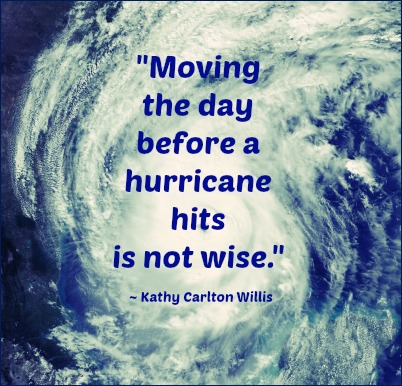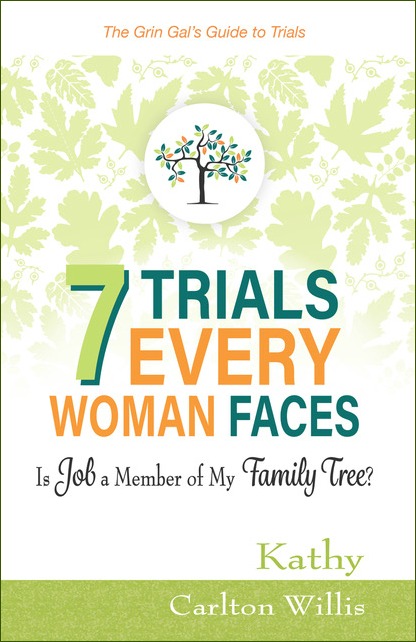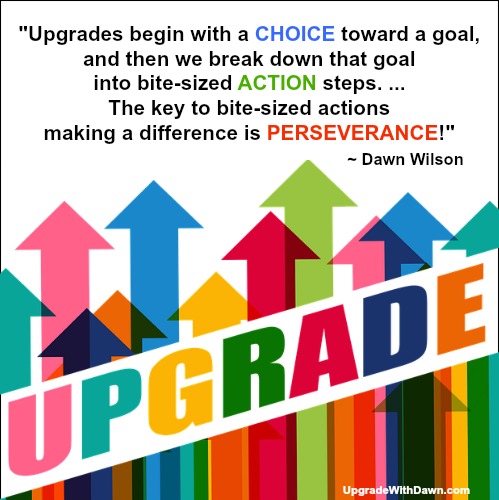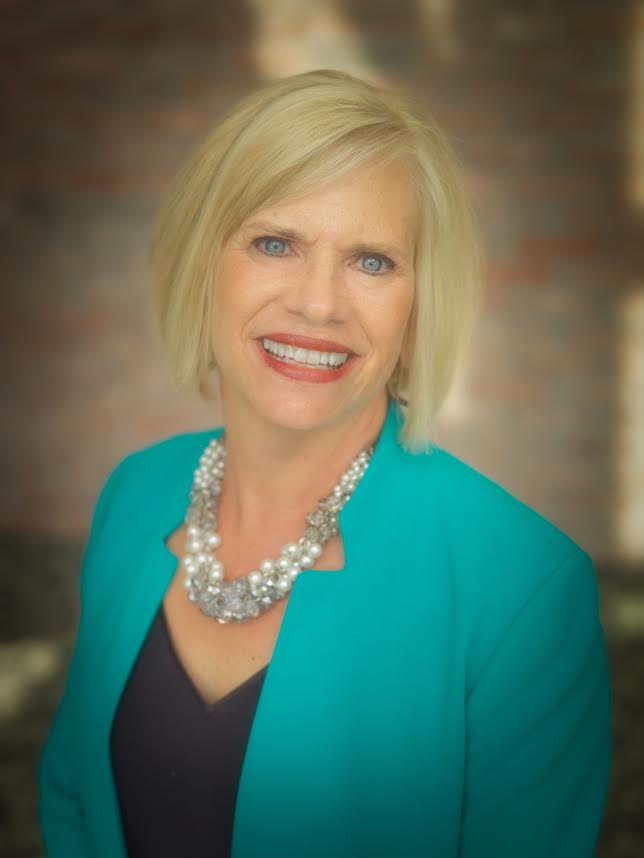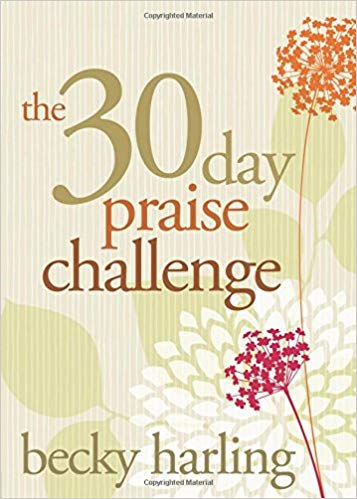Christmas? No Sweat!
In this Christmas UPGRADE, Dawn Wilson encourages practical and biblical responses to the holiday season that can reduce stress, even in a pandemic!
Last year, my Christmas looked so different. Circumstances made my family adapt and change so many aspects of the holiday season.
Preparing for a stem cell transplant, and caring for my husband who developed a serious physical issue that required hospitalization, I did all I could to reduce stress and still enjoy the holiday.
- Some family traditions were either set aside or left to others to fulfill.
- I put up the Christmas tree in September, because originally, my transplant was to be in October (and then it was changed to December, and ultimately January)!
- I didn't have much energy, so I only put up one fourth of my holiday decor... and found I didn't miss the other things.
- I only made half of the holiday foods and treats I usually would make.
- We didn't put up out complicated outdoor Nativity display—disappointing our neighbors, but necessary.
During that December, I thought a lot about what makes Christmas — "Christmas."
This year, I prayed and decided to allow God to show me what is important, and what are simply "stress-builders."
As a recovering perfectionist, I thought I had given all my expectations to the Lord, but I soon discovered my desires for the "perfect Christmas" still demanded my attention. And those unreasonable desires created stress.
That had to change.
God may bring certain stresses into our lives with purpose—usually to teach us something or mature us in our faith. But most of our stresses are of our own doing.
God wants to help us reduce or eliminate unnecessary stresses at Christmas. The Christmas season affords us many choices.
Here's how the Lord spoke to my heart.
Intentional CHOICES Can Eliminate Holiday Stress
1. Settle Who’s in Charge.
I've noticed how many of us would absolutely say, "Jesus is Lord," but we might not allow Him to take control of our Christmas celebration. We know what we want to do—why consult Him?
How ironic that we celebrate the One who came to lead us into peace, joy and love; and yet when we "take charge" we often leave Him out. And we can end up with stress and all sorts of other emotional issues.
Jesus said, "apart from Me, you can do nothing" (John 15:5), but we think we're more than capable of handling the holidays without even a simple prayer for His guidance and help.
The Lord wants to help us with our Christmas plans and relieve our stress, but we have to place our confidence in Him to know what is best for us and our families. We need to ask, listen, and obey.
Surrender your Christmas to the Lord; give Him your burdens and find rest (Matthew 11:28).
When we acknowledge God's sovereign control by faith, we may eliminate many of the holiday worries that cause us stress.
CHOOSE TRUST.
2. Stop Pursuing Perfectionism.
As I mentioned, perfectionism used to keep my head spinning. In pursuit of the "perfect" tree, dinner, gifts, etc., I pretty much ruined how I experienced so many Christmases.
No one and nothing is perfect on this earth. Only God is perfect.
We have expectations for ourselves and for others, and when those hopes or expectations aren't met, we can get heartsick with disappointment (Proverbs 13:12). (Worse, we can get angry when we don't get our way.)
I used to say, "Dawn, choose your battles at Christmas!"
Now I say, "Dawn, watch your expectations."
As we stop pursuing perfectionism, we can give everything our best effort and then relax. My new goal is to do my very best and leave the results to God.
There's nothing wrong with hard work and diligence toward a goal. That's not the same as perfectionism that drives and pressures us.
CHOOSE DILIGENCE.
3. Savor Simplicity.
Sometimes we get so elaborate, people and godly purposes get lost in the process.
Simplifying our lives is one of the best ways to remove stress.
Christmas isn't about complicated decorations and meals. It's about appreciating God's provisions and making memorable moments with the people we love.
Christmas memories are made in quiet chats with grandparents, fun baking sessions, walks in snow (or in San Diego, on the beach), drive in neighborhoods to see Christmas lights and other enjoyable moments. None of that needs to be complicated.
One of the unexpected sources of stress is the problem of "too much." I noticed something this year. I had so much Christmas decor put up, I lost sight of most of it.
It was a sparkly blur!
A wise fashion consultant once told me, "When you dress up to go out, before you go out the door, take off one piece of jewelry or accessory." She knew how easy it is to overdo, especially when we celebrate.
The concept of "less is more" works in fashion, home and Christmas decoration, and so many other areas of life.
God wants us to be content with what we have (1 Timothy 6:8) and be appreciative of the powerful simplicity in the birth of Christ (Luke 2:11).
So realistically, we don't need much to enjoy Christmas. But also—partly because of Covid-19 restrictions—we don't need a full calendar. Yes, there will be activities, especially if we have grandchildren. But sometimes drinking a cup of cocoa in front of the fireplace or munching on a Christmas cookie while watching a timeless holiday movie is all we need.
CHOOSE CONTENTMENT.
4. Set Wise Boundaries.
Setting wise boundaries helps reduce stress. I want to focus on just three areas for boundaries.
(1) Watch your budget.
We don't need to go beyond our means. When we overspend, we not only lose sight of wise choices now, we have to deal with the stress of bills after Chrismas! Set boundaries on your checkbook and credit cards!
Ask God for wisdom (James 1:5) in the use of resources—practice good stewardship.
We seldom need "more." We often need a greater appreciation for what we already have.
Instead of buying more decor this year, I reduced what I have. A local charity got three boxes full of decorations others might appreciate, and I plan to go through my possessions this week to find coats, sweaters, blankets, mittens and other items the homeless might need as the weather turns chilly.
(2) Cut the Clutter.
Look around your room after decorating for the holiday. Does it feel "fussy"—more like a Christmas shop of displays than a home? (I'm so guilty of the over-do at Christmas!)
I know this is an individual thing, and you may want to keep heirlooms and antiques; but if your decor feels like clutter or even hoarding, rethink what you're keeping. You may need to set some boundaries for new purchases—after you cut the clutter now!
Christmas, like life, does not consist of an abundance of things (see Luke 12:15).
Notice the things that may still be in Christmas storage boxes or tubs. Why are they here? If they're not being used, do you really need them?
If you feel your decor is beyond healthy boundaries, here are a few ideas to pare down.
- Take pictures of groupings of items and email or text those photos to family members to see if they want some of your items. (You're just checking, not pressuring.)
- Can some things (good quality) be re-gifted?
- Consider giving to a charity where people can purchase decor at low cost, or use your "treasures" as gifts.
- Note: Sometimes taking a photo for a photo book to preserve and trigger memories can be just as satisfying as keeping the actual thing.
Simplifying by reducing or eliminating things—even well past Christmas—is a good way to get rid of a subtle kind of stress.
(3) Examine your relationships.
In some families, unhealthy relationships are strained throughout the year, and at Christmas, that stress can go over the top!
Set healthy boundaries, even with those you love.
- There's nothing wrong with valuing your time and doing what is best for you and your family. Don't be afraid to be clear about your time, needs or familiy's needs.
- Be kind and gentle (Ephesians 4:32; 1 Corinthians 13:4-7); but don't be afraid to say "no," when necessary.
- Antipate how relationship issues might trigger problems when you get together, and come up with good strategies to make these sticky interactions less stressful.
- Read scriptures about the tongue before Christmas—like "a gentle answer turns away wrath"(Proverbs 15:1)—because good communication goes a long way.)
We can make many wise choices when it comes to spending, our possessions, and relationships. God's Word has practical instruction.
CHOOSE DISCERNMENT.
5. Seek Moderation.
We tend to excuse bad habits during the holidays, thinking over-indulgence will lead to more joy. But overstuffed tummies and late-night binge-watching set us up for physical stress that don't help us.
Wise choices help us avoid upset stomachs and bleary eyes.
What we need is self-restraint, self-control. We can still rejoice and celebrate while practicing moderation (Philippians 4:4-5; 1 Corinthians 6:19-20).
- Yes, we can enjoy a reasonable meal and beverage—small portions; waiting between bites; focusing on people more than the food.
- Yes, we can have dessert—leaving room for it as we enjoy our meal.
- Yes, we can plan opportunities for special Christmas programs—but beware of mindless eating on the couch!
If we seek ways to practice moderation in our celebration, we'll likely be glad we did.
CHOOSE SELF-CONTROL.
6. See Christmas through Others’ Eyes.
It's easy to turn inward and only see our own circumstances. It helps to pause and think about others who have needs too. How can we relieve their stresses?
First, if you have children, intentionally take time to discuss the holiday with them.
- Many children are struggling during the coronavirus. Are they feeling additional stress this Christmas? Can you relieve some of their stress?
- What makes Christmas special for them? More than how many gifts they get (or how big), what activities with you will make these weeks memorable?
- How can you better help them embrace the true meaning of Christmas? How can you help them understand that because Jesus came, we have hope and help.
When it comes to gifts, be careful not to stoke unreasonable or unhealthy expectations. Focus on loving your children, not showering them with "more." Love may include giving, but love does not equal things.
Also, ask God to help you see other people through HIS eyes. Then, as you move through the season, determine to see Christmas through the eyes of those around you:
- a weary or struggling spouse,
- family members who have experienced loss,
- a needy family in your church,
- a homeless person or family,
- a widow or widower,
- an orphan,
- an elderly shut-in or someone who is sick,
- someone deployed in the military, or
- a single person who might be lonely.
Because of Covid-19, many are hurting. Some feel desperate. Many have lost family members or jobs.
Be kind and compassionate, ready to counsel and comfort others during the holiday (2 Corinthians 1:3-4; Colossians 3:12).
CHOOSE LOVE.
We don't have to "sweat" the holidays because of stress. We can relax and choose biblical responses like trust, diligence, contentment, discernment, self-control and love that will bring us a greater measure of joy and peace.
What is causing you stress so far this holiday season? Which biblical response could help you today?
Dawn Wilson, founder and President of Heart Choices Today, is a speaker and author,  and the creator the blog, Upgrade with Dawn. She is a contracted researcher/reviewer for women's teacher and revivalist, Nancy DeMoss Wolgemuth, at Revive Our Hearts, a blogger at TrueWoman.com, writes wiki-type posts at Christianity.com, and is a regular columnist at Crosswalk.com. She and her husband Bob live in sunny Southern California, and Dawn has traveled with Him in Pacesetter Global Outreach. They have two grown, married sons, three granddaughters and a rascally maltipoo, Roscoe.
and the creator the blog, Upgrade with Dawn. She is a contracted researcher/reviewer for women's teacher and revivalist, Nancy DeMoss Wolgemuth, at Revive Our Hearts, a blogger at TrueWoman.com, writes wiki-type posts at Christianity.com, and is a regular columnist at Crosswalk.com. She and her husband Bob live in sunny Southern California, and Dawn has traveled with Him in Pacesetter Global Outreach. They have two grown, married sons, three granddaughters and a rascally maltipoo, Roscoe.
 Post a Comment → Posted on
Post a Comment → Posted on  Tuesday, December 8, 2020 at 9:51AM
Tuesday, December 8, 2020 at 9:51AM  Choices at Christmas,
Choices at Christmas,  Christmas Stress,
Christmas Stress,  Dawn Wilson,
Dawn Wilson,  Holiday Stress,
Holiday Stress,  Stress,
Stress,  Upgrade with Dawn,
Upgrade with Dawn,  Wise Choices Upgrade Your Life
Wise Choices Upgrade Your Life  Biblical Thinking,
Biblical Thinking,  Choices,
Choices,  Christmas
Christmas 




